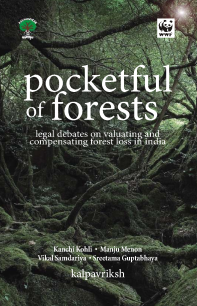 Diversion or dereservation of forest land for non-forest uses such as mining and industry comes with the mandatory condition of compensatory afforestation. This is to be undertaken as per the guidelines of the Ministry of Environment and Forests.
Diversion or dereservation of forest land for non-forest uses such as mining and industry comes with the mandatory condition of compensatory afforestation. This is to be undertaken as per the guidelines of the Ministry of Environment and Forests.
Over the years, the poor implementation of this condition has come under scrutiny. Initiated by the Supreme Court, the debates and deliberations drew in the Central Empowered Committee, the Ministry of Environment and Forests and several legal and forestry experts to find a way to improve implementation. This process put into place a standardised system of valuating forests that are proposed for diversion, based on the goods and services provided by them. It has also resulted in the creation of an institutional network comprising forest officials, experts and politicians at the centre and the states for the collection and disbursal of funds collected on account of diversion or dereservation.
This present book "Pocketful of Forests: Legal debates around compensation and valuation of forests in India", examines the steps that led to the setting up of the Compensatory Afforestation Planning and Management Authority (CAMPA) and the method of calculating the Net Present Value (NPV) of forests. The arguments that have taken place between the judiciary, the executive and the parliament since 1999 are presented. They touch upon centre-state relations, the political, administrative and technical notions of forests and the role of negotiation in policy-making.
This report was supported by WWF-India's Civil Society Collaboration for Environment Governance Initiative.
For copies please contact Kalpavriksh at kvbooks@gmail.com or kalpavriksh.delhi@gmail.com. Kalpavriksh requests a small contributory amount of Rs. 200/-